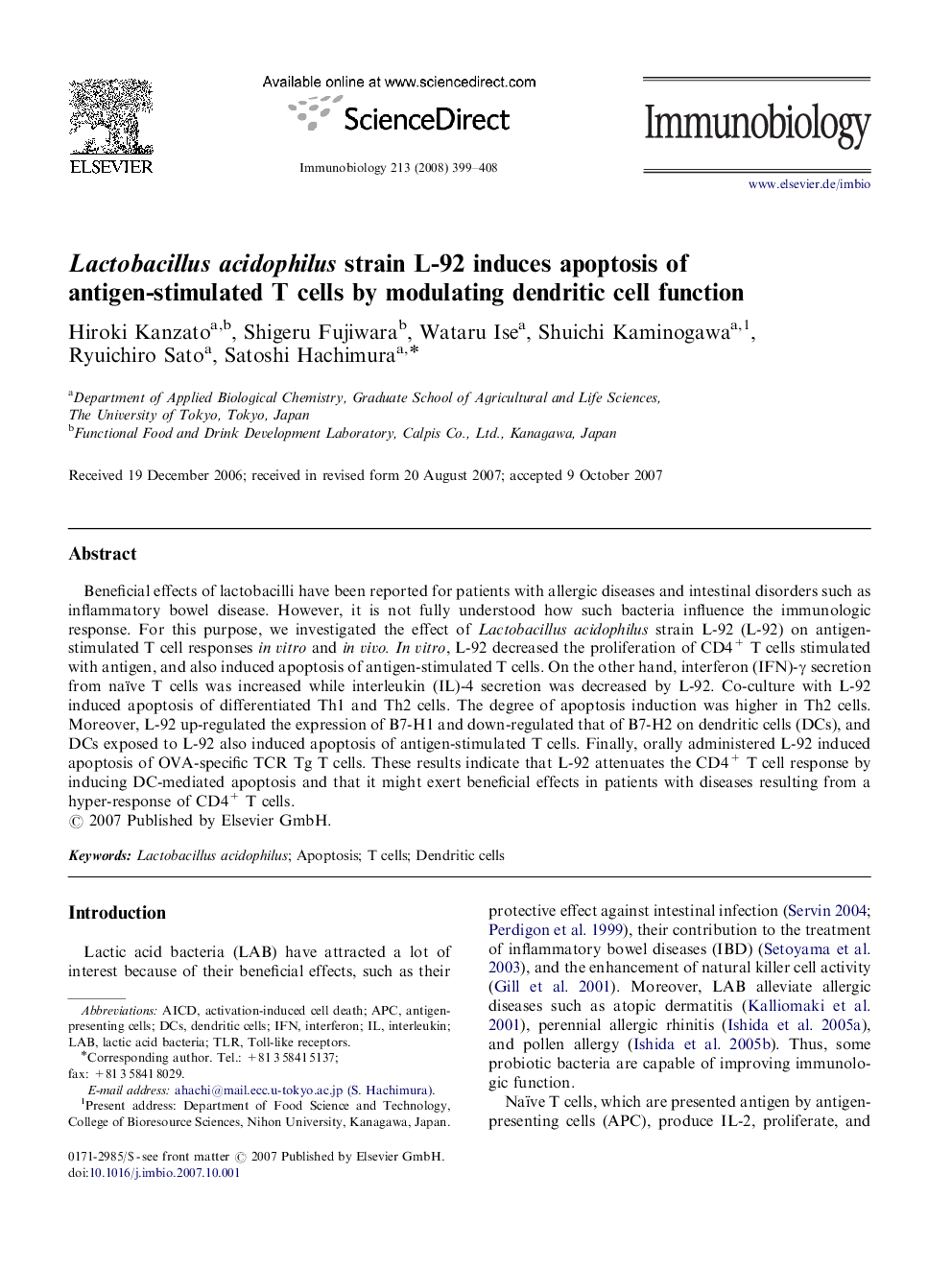| Article ID | Journal | Published Year | Pages | File Type |
|---|---|---|---|---|
| 2183777 | Immunobiology | 2008 | 10 Pages |
Beneficial effects of lactobacilli have been reported for patients with allergic diseases and intestinal disorders such as inflammatory bowel disease. However, it is not fully understood how such bacteria influence the immunologic response. For this purpose, we investigated the effect of Lactobacillus acidophilus strain L-92 (L-92) on antigen-stimulated T cell responses in vitro and in vivo. In vitro, L-92 decreased the proliferation of CD4+ T cells stimulated with antigen, and also induced apoptosis of antigen-stimulated T cells. On the other hand, interferon (IFN)-γ secretion from naïve T cells was increased while interleukin (IL)-4 secretion was decreased by L-92. Co-culture with L-92 induced apoptosis of differentiated Th1 and Th2 cells. The degree of apoptosis induction was higher in Th2 cells. Moreover, L-92 up-regulated the expression of B7-H1 and down-regulated that of B7-H2 on dendritic cells (DCs), and DCs exposed to L-92 also induced apoptosis of antigen-stimulated T cells. Finally, orally administered L-92 induced apoptosis of OVA-specific TCR Tg T cells. These results indicate that L-92 attenuates the CD4+ T cell response by inducing DC-mediated apoptosis and that it might exert beneficial effects in patients with diseases resulting from a hyper-response of CD4+ T cells.
